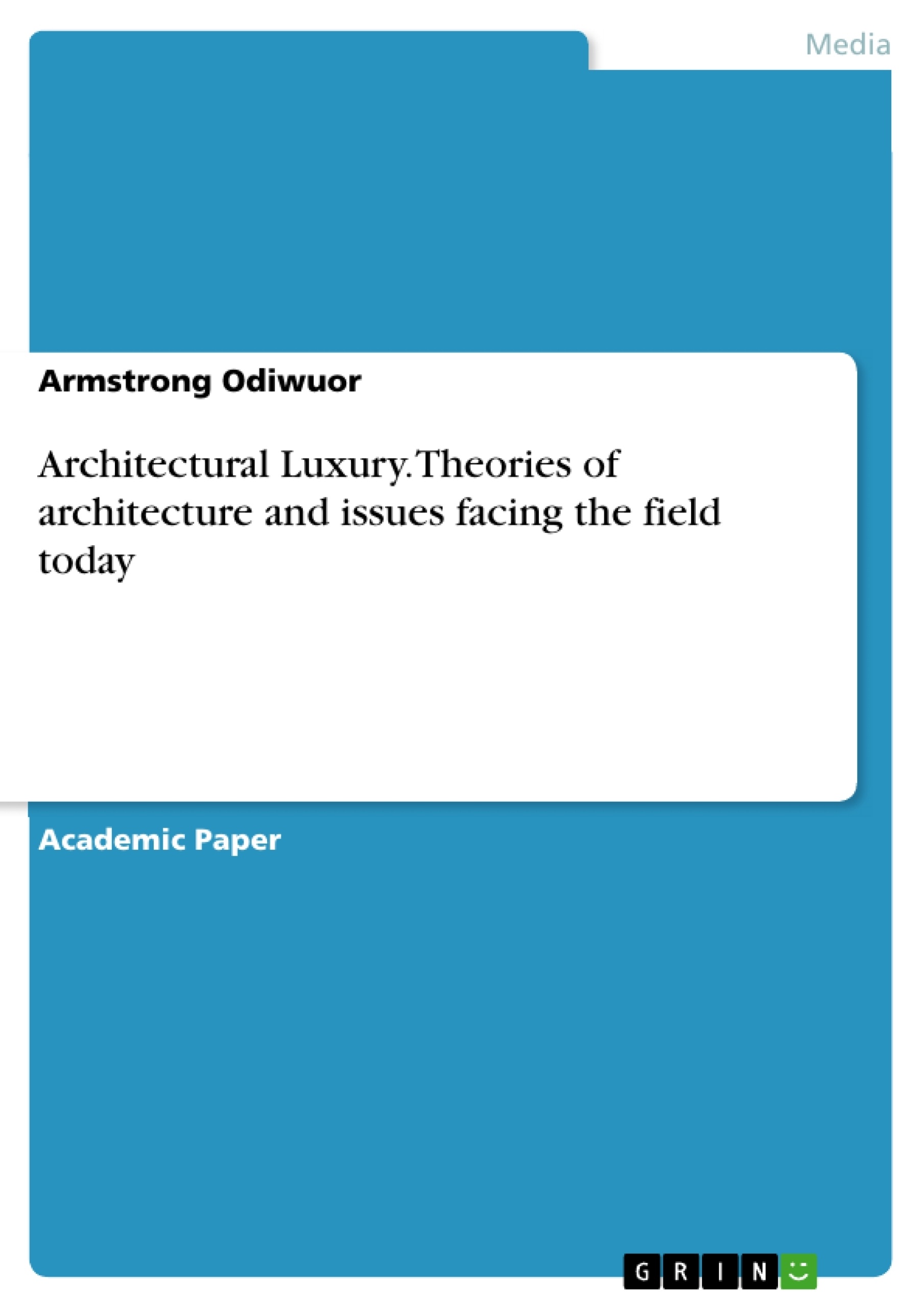This paper delves into the realm of architectural theory and its implications in the contemporary world, particularly focusing on the concept of architectural luxury. It begins by discussing the historical significance of architecture as a reflection of societal values and progress. The theories of architecture, ranging from Christian Norberg Schulz's Phenomenon of Place to the Universal Space theory and Functionalism, are explored in depth, highlighting their relevance to luxury architecture.
Key issues facing architecture today, including the need for inclusivity, material limitations, and preservation of heritage, are thoroughly examined. Additionally, the paper explores the profound effects of architectural sites on individuals and society, emphasizing the importance of well-designed spaces for productivity, mood, and health.
Finally, it discusses how changes in architectural trends have positively impacted society, with luxury architecture no longer confined to the elite but embraced as a vital aspect of modern living. Through comprehensive analysis and scholarly references, this paper provides valuable insights into the theories, challenges, and transformative potential of architecture in contemporary society.
Inhaltsverzeichnis (Table of Contents)
- Introduction
- The Phenomenon of Place by Christian Norberg Schulz
- Universal Space theory
- Functionalism
- Theory of Signs
- Key issues for architecture today
- The effect(s) of the architectural site
- Changes and how they have improved society
- Conclusion
Zielsetzung und Themenschwerpunkte (Objectives and Key Themes)
This paper delves into the realm of architectural luxury by exploring the foundations of architecture and its contemporary challenges. It examines four key architectural theories, investigates contemporary issues in the field, and analyzes the impact of architectural sites on design and society.
- Theories of Architectural Luxury
- The Influence of Architectural Sites
- Contemporary Issues in Architecture
- The Evolution of Architecture and its Impact on Society
Zusammenfassung der Kapitel (Chapter Summaries)
- Introduction: This section provides a general overview of architecture's role in reflecting societal values and achievements throughout history. It introduces the concept of architectural theory as a framework for evaluating building projects and designs.
- The Phenomenon of Place by Christian Norberg Schulz: Schulz's theory emphasizes the creation of meaningful places through architectural design. The section explores the importance of place's "spirit" and its sensory qualities, as well as the role of basic architectural components like ceilings, floors, and walls.
- Universal Space Theory: This theory focuses on creating flexible spaces adaptable to diverse activities and user needs. It emphasizes the importance of designing spaces that are not site-specific or tied to specific clients.
- Functionalism: This section explores the "form follows function" principle, where building design is driven by purpose rather than aesthetics. It discusses the influence of functionalism on modernist architecture and its criticism for its focus on form over practicality.
Schlüsselwörter (Keywords)
This paper focuses on the theory of architecture, luxury architecture, architectural sites, functionalism, and the impact of architectural changes on society. Key concepts include the phenomenon of place, universal space, and the importance of design in reflecting and shaping human experiences.
- Quote paper
- Armstrong Odiwuor (Author), 2024, Architectural Luxury. Theories of architecture and issues facing the field today, Munich, GRIN Verlag, https://www.grin.com/document/1452833



